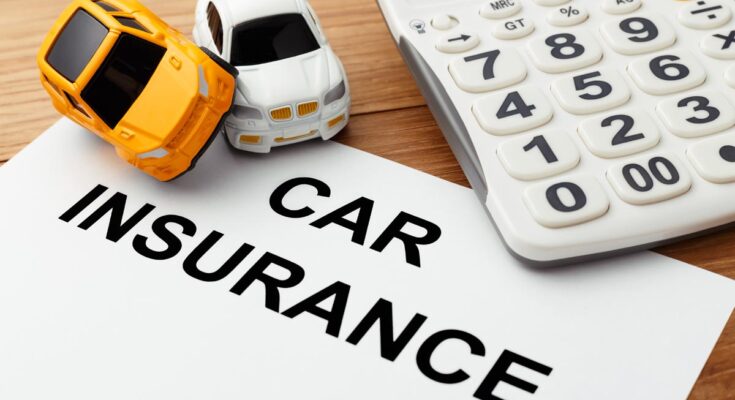Car Insurance: Essential Protection for Your Vehicle and Peace of Mind
Car insurance is a crucial aspect of responsible vehicle ownership. It offers financial protection in case of accidents, theft, or damage to your vehicle. While it’s often legally required, car insurance provides much more than just compliance with the law. It can save you from significant financial burdens and offer peace of mind while driving. This article will delve into the types of car insurance, its benefits, and why it is important to have the right coverage.
What is Car Insurance?
Car insurance is an agreement between a vehicle owner and an insurance company that provides financial protection in case of accidents, damage, or theft. In exchange for paying regular premiums, the insurer offers coverage for the cost of repairs, medical expenses, or replacement of the car in case of a covered event. Car insurance can also provide liability coverage if you cause damage to others or their property.
Types of Car Insurance Coverage
Car insurance policies typically offer several types of coverage, each with its own benefits and protections. The specific coverage options may vary by insurer, but the most common include:
1. Liability Coverage
Liability coverage is often mandatory and protects you if you’re at fault in an accident. It covers the costs of damage to another person’s property, including their car, and medical expenses for injuries they sustain in the accident.
- Bodily Injury Liability: Pays for medical expenses if others are injured in an accident you caused.
- Property Damage Liability: Covers the cost of repairing or replacing another person’s property, such as their vehicle or a fence.
2. Collision Coverage
Collision coverage pays for repairs to your own vehicle if you’re involved in an accident, regardless of who is at fault. This is especially helpful if you’re driving an older or high-value car that could be expensive to repair.
3. Comprehensive Coverage
Comprehensive coverage protects your vehicle against non-collision events, such as theft, vandalism, natural disasters, or hitting an animal. It’s not required by law but is highly recommended for newer or more valuable vehicles.
4. Uninsured/Underinsured Motorist Coverage
This coverage protects you if you’re involved in an accident with a driver who doesn’t have insurance or lacks sufficient coverage to pay for damages. It ensures that you’re not left financially responsible for damages caused by someone else’s negligence.
5. Personal Injury Protection (PIP)
PIP, also known as no-fault insurance, covers medical expenses for you and your passengers, regardless of who is at fault in an accident. It may also cover lost wages, child care, and funeral expenses in some cases.
6. Medical Payments Coverage
Medical payments coverage is similar to PIP but usually has a narrower scope. It helps cover medical bills for you and your passengers after an accident, regardless of fault.
7. Gap Insurance
If you have a loan or lease on your vehicle and it’s totaled in an accident, gap insurance can cover the difference between what your insurance payout is and the remaining balance on your loan or lease.
Benefits of Car Insurance
- Financial Protection: Car insurance offers significant financial protection in the event of an accident, theft, or damage. Without insurance, you would have to pay out-of-pocket for repairs, medical bills, or even legal fees.
- Legal Compliance: Most states require drivers to have a minimum level of car insurance to legally operate a vehicle. Failure to comply can result in penalties, fines, or the suspension of your driver’s license.
- Peace of Mind: Knowing that you’re financially covered in case of an accident provides peace of mind, allowing you to drive with confidence.
- Coverage for Medical Expenses: Car insurance policies with medical coverage can help cover the costs of medical treatments if you’re injured in an accident.
- Protection Against Uninsured Drivers: In case you’re involved in an accident with an uninsured or underinsured driver, your policy can help cover the costs, ensuring you’re not left at a financial disadvantage.
- Coverage for Vehicle Repairs: Collision and comprehensive coverage help pay for repairs or replacement of your vehicle, preventing the financial burden of having to fix or replace your car out of pocket.
- Liability Coverage: Liability coverage helps protect your finances if you cause damage to another person’s property or injure someone in an accident. Without this, you could face lawsuits and costly legal fees.
Why Car Insurance is Important
- Protection from Financial Loss: Car repairs, medical expenses, and legal fees can quickly add up after an accident. Car insurance provides financial protection, reducing the financial strain of an unexpected event.
- Legal Requirement: In many places, it’s illegal to drive without car insurance. Having adequate coverage ensures that you comply with the law and avoid penalties.
- Vehicle Value Protection: If your vehicle is stolen or totaled, comprehensive and collision coverage ensures that you receive compensation for the loss, helping you replace your car or cover repair costs.
- Accident and Injury Prevention: While car insurance cannot prevent accidents, it can mitigate the financial consequences, ensuring you’re not left in financial ruin after an unexpected event.
- Protection for Others: Car insurance also protects other drivers and pedestrians. If you’re at fault in an accident, liability coverage ensures that you’re not financially responsible for medical bills and property repairs caused to others.
How to Choose the Right Car Insurance
- Assess Your Needs: Consider factors such as the value of your car, your driving habits, and your budget when selecting coverage. Newer vehicles often require more comprehensive coverage, while older vehicles may only need liability or collision coverage.
- Understand State Requirements: Make sure your policy meets the minimum legal requirements in your state or country, which can vary significantly.
- Compare Quotes: Shop around and compare quotes from multiple insurers to find the best rate. Look at both the premium cost and the level of coverage provided.
- Review Policy Details: Always read the fine print to understand what is covered and what isn’t, as some policies may have exclusions or limitations.
- Consider Deductibles: A higher deductible can lower your premium, but it also means you’ll pay more out-of-pocket if you file a claim. Find a balance that works for your budget and risk tolerance.
Conclusion
Car insurance is more than just a legal requirement—it’s a vital part of financial protection that ensures you’re covered in case of accidents, theft, or other unexpected events. With the right coverage, you can drive with peace of mind, knowing that you and your loved ones are protected. Take the time to assess your needs, compare policies, and choose the best coverage for your situation, so you can stay safe on the road and avoid unnecessary financial hardships.



